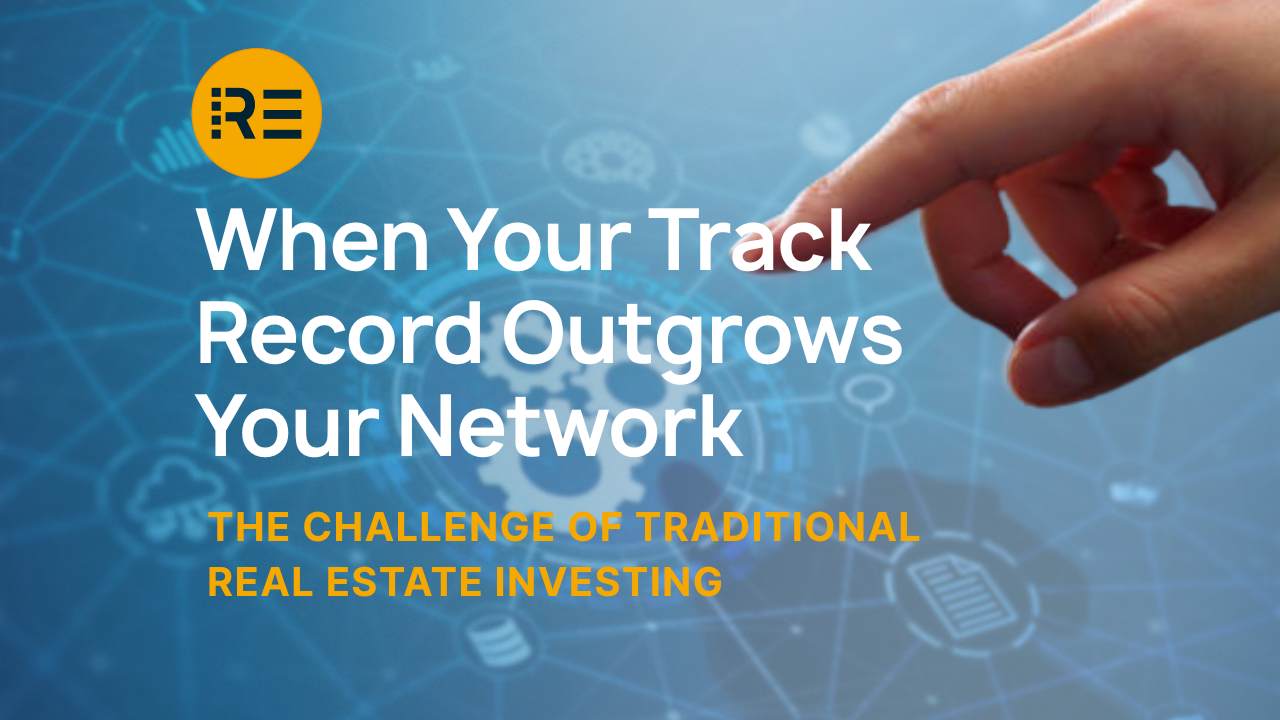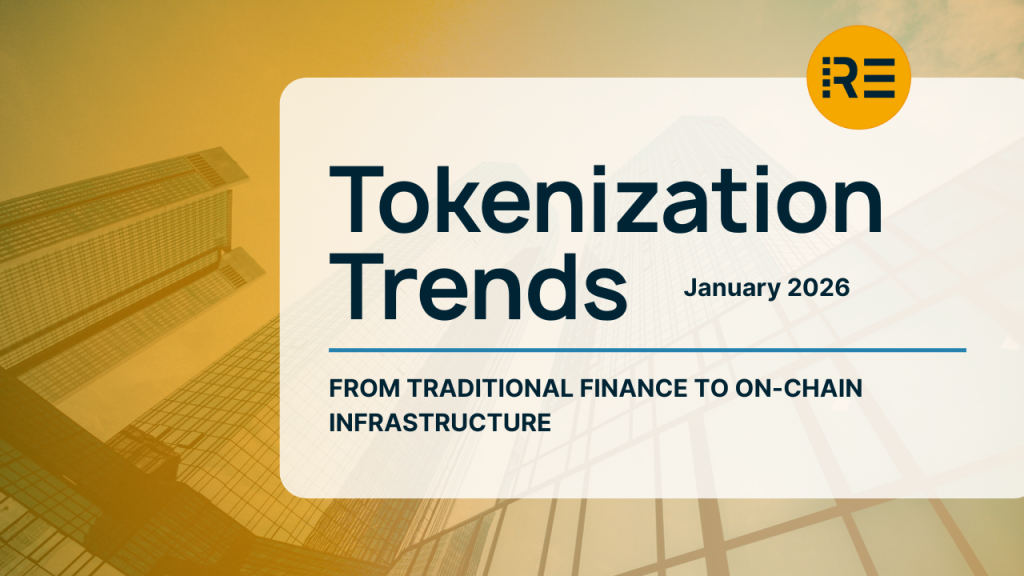Tyler Vinson had a problem that would sound enviable to most people: too many good deals and not enough qualified investors.
As CEO of Extant Investment (and now CEO of REtokens), Tyler had successfully raised capital for multiple real estate projects over the years. His track record was solid, his deals were profitable, and his investor relationships were strong. But by the time he was ready to launch Freedom Fund 2—a $10 million acquisition and development fund targeting multifamily properties and storage facilities in the Pacific Northwest—he faced a syndicator challenge that threatened to cap his growth permanently.
He was running out of people to call.
Deal #1: 50 or so investors from his network
Deal #2: Half of the same people (plus 4 new ones)
Deal #3: Majority of the original group (most had maxed out)
Freedom Fund 1: 12 investors (his core group was tapped)
For Freedom Fund 2’s $10 million target, Tyler calculated a sobering reality: his entire investor network could maybe contribute $6-7 million if everyone participated at maximum levels. He needed to find $3-4 million from somewhere else, or scale back his ambitions.
The irony wasn’t lost on him. While building REtokens to solve real estate’s liquidity problems, he was hitting the same growth ceiling that limits every successful syndicator: the geographic investor network trap.
Syndicator Challenge of a Limited Investor Network
Tyler’s situation perfectly illustrates limited network math—the mathematical reality that constrains traditional real estate syndication regardless of deal quality or syndicator skill.
Here’s how the numbers typically break down for a successful syndicator:
Core investor network: 25-40 active participants
Average investment per person: $50,000-150,000
Maximum network capacity: $2-6 million per deal
Network refresh rate: 18-24 months (time to rebuild capacity)
The brutal truth: Even excellent syndicators hit a growth ceiling based on their personal relationships and geographic reach, not their ability to find and execute profitable deals.
Tyler’s observation of his investor network revealed the deeper challenge:
- 3/4 of investors: Local or regional contacts within 200 miles
- 1/4 of investments: Came from the same core investors across multiple deals
- Attrition rate almost half: Investors who participated once but not again
- Geographic limits: Majority of capital from 2-3 metropolitan areas
The opportunity cost was significant: Tyler knew qualified investors existed worldwide who would be interested in his Pacific Northwest focus, proven track record, and storage facility expertise. But traditional syndication methods were restricted in reaching them.
The Global Disconnect
While Tyler struggled with a tapped-out local network, data showed massive unmet demand for quality real estate investment opportunities worldwide:
In Texas: Family offices seeking Pacific Northwest exposure for geographic diversification
In California: High-net-worth investors looking for storage facility expertise
In Florida: Investment groups wanting multifamily exposure outside their saturated local markets
Internationally: Accredited investors seeking U.S. real estate opportunities with experienced operators
The disconnect was maddening. Tyler had institutional-quality deals and a proven track record. Global investors had capital and appetite for his type of investment profile. But traditional syndication methods created artificial barriers between supply and demand.
The traditional syndication model often finds that your personal network is your total addressable market and your personal network represents less than 1% of potential global investor interest.
Breaking the Geographic Barrier
Tyler made a strategic decision with Freedom Fund 2: instead of accepting the syndicator challenge of network limitations or scaling back his ambitions, he would test whether tokenization could break the geographic investor prison that constrains traditional syndication.
Freedom Fund 2 LLC became his laboratory for global investor access.
Traditional Approach Would Have Required:
- Cold outreach to hundreds of potential investors
- Individual relationship building across multiple markets
- Travel and in-person meetings in various cities
- Separate compliance verification for each new jurisdiction
- Manual coordination across time zones and communication preferences
Tokenized Approach Enabled:
- Digital platform accessible to global accredited investors
- Automated investor verification and onboarding systems
- Integrated compliance management for multiple jurisdictions
- Centralized communication and document management
- Professional presentation that scales internationally
- Pathway to global reach to solve the syndicator challenge of a limited investor network
The Network Effect Multiplier
What Tyler discovered through Freedom Fund 2 was that tokenization doesn’t just solve the syndicator challenge of network limitation—it creates network effects that compound over time.
Traditional Networks: Each deal reduces available capital from the same investor pool
Tokenized Networks: Successful deals potentially increase credibility to attract new investors
Traditional Relationships: Investors are either in your network or not
Tokenized Platforms: Quality operators can be found by investors seeking opportunities
Traditional Geography: Your physical location determines your investor pool
Tokenized Platforms: Location becomes irrelevant for both investors and operators
Freedom Fund 2 proved that tokenization transforms investor networks from a constraint into a competitive advantage.
The Competitive Advantage
Tyler’s Freedom Fund 2 experiment revealed how network limitations create artificial competitive barriers in traditional real estate syndication:
Syndicator A (Traditional): Limited to local network, must choose between deal size and investor diversification, hits growth ceiling based on relationship capacity
Syndicator B (Tokenized): Access to global investor pool, can scale deal size based on opportunity quality, growth limited by deal sourcing ability rather than network constraints
The competitive implications are profound. Traditional syndicators compete within the constraints of their personal networks. Tokenized syndicators compete based on deal quality and execution capability—a much more meritocratic environment.
Tyler’s Freedom Fund 2 showed that breaking free from the syndicator challenge of network limitations isn’t just about raising more capital—it’s about competing in an entirely different league.
The Future: Unlocked Real Estate
Freedom Fund 2 LLC represents more than just a successful $10 million raise from a geographically diverse investor base. It’s demonstrating that real estate syndication can evolve beyond the artificial constraints of personal networks and geographic limitations.
The same Pacific Northwest opportunities. The same multifamily and storage facility expertise. The same regulatory compliance and investor protections. But with global reach that transforms both capital availability and competitive positioning.
Tyler’s experiment shows that the choice isn’t between local relationships and global scale—tokenization enables both. Personal relationships remain crucial for deal sourcing and execution, while digital platforms provide the infrastructure for global capital access.
Ready to learn more about tokenized real estate? Tyler’s Freedom Fund methodology demonstrates how tokenization can transform your investor reach from local to global, your deal capacity from constrained to scalable, and your competitive position from limited to leading.
Discover how to unlock global investor networks with REtokens →





